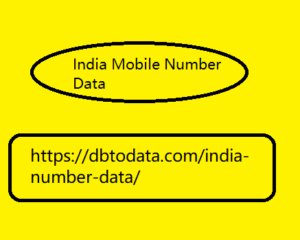Post by account_disabled on Mar 12, 2024 3:40:49 GMT -6
Every time someone writes about Personal Branding, email, YouTube, social media, Telegram or influencer marketing (the list is still long, but I'll stop here), there's always the one who comments that it's useless, which is all " fluff” and that none of these things are useful for generating new customers. If you publish informative content, someone comes along who says it's trivial and that you've discovered hot water or that the information isn't complete and you should have written a treatise. If the "experts" arrive you're done for. Whatever you did, they did it 5 years earlier and with triple the results. If you tell little about what happens to you they say you are in decline, if you divulge a success at work you are a self-centered and boastful marketeer.
Then there are those who say SEO is dead, Google Plus was India Mobile Number Data never born, the blog is dead, the content is dead and that it's all a bubble ready to explode. In short, the web, from whatever point you look at it, is full of failed national team coaches, experts in something (who don't do it for a living) and connoisseurs. Criticism helps engagement Personally, I have never banned anyone who attacks me, except in some very extreme cases. A few years ago I was upset when faced with strong criticism and I wondered what to do and how it would be best to react. Now I have very clear ideas about it. Those who criticize must, at least initially, be fed. For two reasons. First, visibility algorithms reward the amount of interaction and speed of response. If they think they are giving me a little trouble, in reality they are fueling my organic visibility score by helping me make the content visible.

Secondly, a post that manages to generate an animated conversation generates other comments, shares and helps me explain myself better, in case I wasn't able to explain what I wanted to say well. I would add that criticism has resulted in excellent friendships from which I have learned great lessons. Sometimes those who criticize know more than you. This happens too. Is criticism useful to those who criticize? I'm not one to criticize easily. I have always asked myself: if I criticize and demonstrate that I know more than the person who wrote the nonsense, what do I get besides making an enemy? I waste time and energy proving my point in an argument, but what's in it for me? Do I find new customers? Or do I come across as a know-it-all pain in the ass? I would say that the answer to all these questions is obvious.
Then there are those who say SEO is dead, Google Plus was India Mobile Number Data never born, the blog is dead, the content is dead and that it's all a bubble ready to explode. In short, the web, from whatever point you look at it, is full of failed national team coaches, experts in something (who don't do it for a living) and connoisseurs. Criticism helps engagement Personally, I have never banned anyone who attacks me, except in some very extreme cases. A few years ago I was upset when faced with strong criticism and I wondered what to do and how it would be best to react. Now I have very clear ideas about it. Those who criticize must, at least initially, be fed. For two reasons. First, visibility algorithms reward the amount of interaction and speed of response. If they think they are giving me a little trouble, in reality they are fueling my organic visibility score by helping me make the content visible.

Secondly, a post that manages to generate an animated conversation generates other comments, shares and helps me explain myself better, in case I wasn't able to explain what I wanted to say well. I would add that criticism has resulted in excellent friendships from which I have learned great lessons. Sometimes those who criticize know more than you. This happens too. Is criticism useful to those who criticize? I'm not one to criticize easily. I have always asked myself: if I criticize and demonstrate that I know more than the person who wrote the nonsense, what do I get besides making an enemy? I waste time and energy proving my point in an argument, but what's in it for me? Do I find new customers? Or do I come across as a know-it-all pain in the ass? I would say that the answer to all these questions is obvious.


